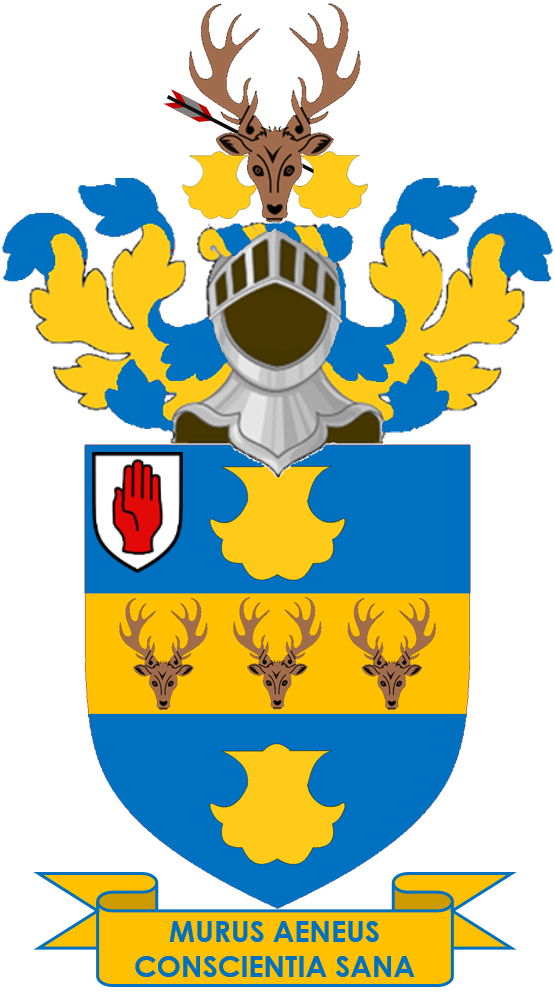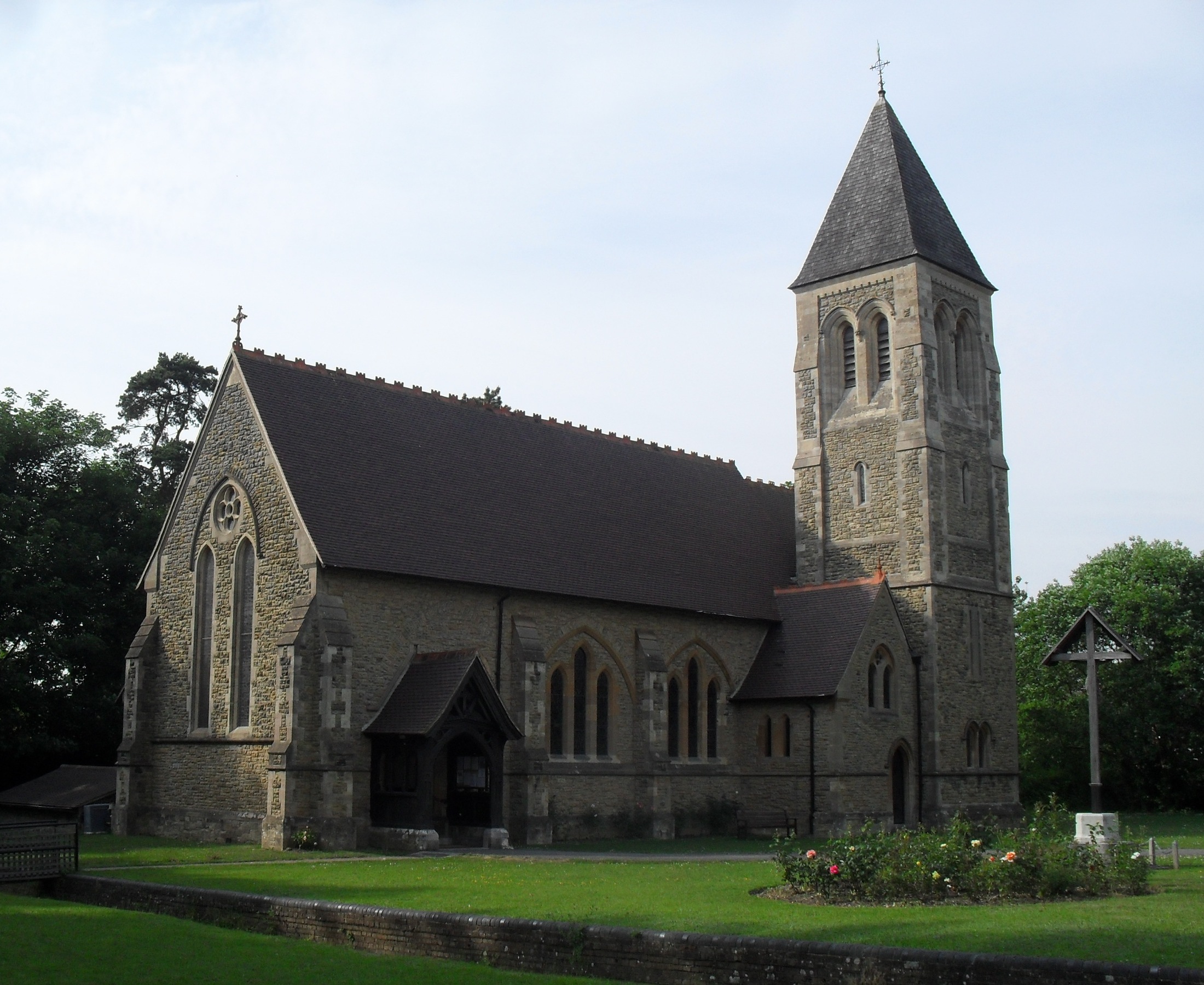|
Sir Edmund Giles Loder, 2nd Baronet
Sir Edmund Giles Loder, 2nd Baronet (7 August 1849 – 14 April 1920) was an English aristocrat, landowner and plantsman. Biography Early life Edmund Giles Loder was born on 7 August 1849 in London, England. His father was Sir Robert Loder, 1st Baronet (1823–1888), a landowner and Conservative politician, and his mother, Maria Georgiana Busk (1826–1907). His maternal grandfather was Hans Busk (1772–1862), a Wales, Welsh poet. He was educated at Eton College, a private boarding school in Eton, Berkshire, and graduated from Trinity College, a constituent college of the University of Cambridge. Career He served as a Justice of the Peace for Sussex and Northampshire. Loder was active as a plant collector, breeder and grower. He developed hybrid rhododendrons from crosses between '' R. fortunei'' and ''R. griffithianum''. The plants were named the Loderi hybrids and group in his honour. Three, Loderi King George, Loderi Pink Diamond and Loder's White, have received the Award ... [...More Info...] [...Related Items...] OR: [Wikipedia] [Google] [Baidu] |
London
London is the capital and largest city of England and the United Kingdom, with a population of just under 9 million. It stands on the River Thames in south-east England at the head of a estuary down to the North Sea, and has been a major settlement for two millennia. The City of London, its ancient core and financial centre, was founded by the Romans as '' Londinium'' and retains its medieval boundaries.See also: Independent city § National capitals The City of Westminster, to the west of the City of London, has for centuries hosted the national government and parliament. Since the 19th century, the name "London" has also referred to the metropolis around this core, historically split between the counties of Middlesex, Essex, Surrey, Kent, and Hertfordshire, which largely comprises Greater London, governed by the Greater London Authority.The Greater London Authority consists of the Mayor of London and the London Assembly. The London Mayor is distinguished fr ... [...More Info...] [...Related Items...] OR: [Wikipedia] [Google] [Baidu] |
Royal Horticultural Society
The Royal Horticultural Society (RHS), founded in 1804 as the Horticultural Society of London, is the UK's leading gardening charity. The RHS promotes horticulture through its five gardens at Wisley (Surrey), Hyde Hall (Essex), Harlow Carr (North Yorkshire), Rosemoor (Devon) and Bridgewater (Greater Manchester); flower shows including the Chelsea Flower Show, Hampton Court Palace Flower Show, Tatton Park Flower Show and Cardiff Flower Show; community gardening schemes; Britain in Bloom and a vast educational programme. It also supports training for professional and amateur gardeners. the president was Keith Weed and the director general was Sue Biggs CBE. History Founders The creation of a British horticultural society was suggested by John Wedgwood (son of Josiah Wedgwood) in 1800. His aims were fairly modest: he wanted to hold regular meetings, allowing the society's members the opportunity to present papers on their horticultural activities and discoveries, to enc ... [...More Info...] [...Related Items...] OR: [Wikipedia] [Google] [Baidu] |
Giles Rolls Loder
Sir Giles Rolls Loder, 3rd Baronet DL (1914–1999) was an English aristocrat, World War II veteran, public official, horticulturalist and yachtsman. Biography Early life Giles Rolls Loder was born on 10 November 1914 in London, England. '''', 22 March 1999 His father was Robert Egerton Loder (1887–1917) and his mother, Muriel Rolls Hoare (1879–1955). His paternal grandfather was (1849–1920) and his paternal great-grandfather wa ... [...More Info...] [...Related Items...] OR: [Wikipedia] [Google] [Baidu] |
Loder Baronets
The Loder Baronetcy, of Whittlebury in the County of Northampton, and of High Beeches in Slaugham in the County of Sussex, was created in the Baronetage of the United Kingdom on 27 July 1887 for Robert Loder, who had previously represented New Shoreham in the House of Commons as a Conservative. Gerald Loder, 1st Baron Wakehurst, was the fifth son of the first Baronet. Loder baronets, of Whittlebury and High Beeches (1887) *Sir Robert Loder, 1st Baronet (1823–1888) *Sir Edmund Giles Loder, 2nd Baronet (1849–1920) *Sir Giles Rolls Loder, 3rd Baronet (1914–1999) *Sir Edmund Jeune Loder, 4th Baronet (born 1941) See also *Baron Wakehurst References *Kidd, Charles, Williamson, David (editors). ''Debrett's Peerage and Baronetage'' (1990 edition). New York: St Martin's Press, 1990. *{{Rayment-bt, date=March 2012 Loder Loder is a surname. Notable people with the surname include: * Andrew Loder (1826–1900), Australian politician * Anne Marie Loder (born 1969), Canadian actre ... [...More Info...] [...Related Items...] OR: [Wikipedia] [Google] [Baidu] |
Sir Alfred Pease, 2nd Baronet
Sir Alfred Edward Pease, 2nd Baronet (29 June 1857 – 27 April 1939), was a British Liberal Party politician who sat in the House of Commons between 1885 and 1902 and who became a pioneer settler of British East Africa, now Kenya. Early life Alfred Pease was a member of the family of Quaker industrialists, known in Britain as the Darlington Peases. He was the elder son of Joseph W. Pease, 1st Bt and his wife Mary Fox. His younger brother gained a peerage and became Joseph Albert Pease, 1st Baron Gainford. Alfred was educated at Grove House School, Tottenham, and at Trinity College, Cambridge. Career He began his career in the family bank, J. & J. W. Pease, of which he later became both a director and partner. He held similar positions in Pease & Partners, whose subsidiary interests embraced collieries, Ironstone mines, limestone quarries, as well as iron manufacturing, fabrication and construction. In the course of his years, he served as managing director, Vice-Chairman (19 ... [...More Info...] [...Related Items...] OR: [Wikipedia] [Google] [Baidu] |
Horsham
Horsham is a market town on the upper reaches of the River Arun on the fringe of the Weald in West Sussex, England. The town is south south-west of London, north-west of Brighton and north-east of the county town of Chichester. Nearby towns include Crawley to the north-east and Haywards Heath and Burgess Hill to the south-east. It is the administrative centre of the Horsham district. History Governance Horsham is the largest town in the Horsham District Council area. The second, higher, tier of local government is West Sussex County Council, based in Chichester. It lies within the ancient Norman administrative division of the Rape of Bramber and the Hundred of Singlecross in Sussex. The town is the centre of the parliamentary constituency of Horsham, recreated in 1983. Jeremy Quin has served as Conservative Member of Parliament for Horsham since 2015, succeeding Francis Maude, who held the seat from 1997 but retired at the 2015 general election. Geography Weat ... [...More Info...] [...Related Items...] OR: [Wikipedia] [Google] [Baidu] |
Lower Beeding
Lower Beeding is a village and civil parish in the Horsham District of West Sussex, England. The village lies on the B2110, B2115 and A281 roads southeast from Horsham, and is centred on Holy Trinity Church and The Plough public house, where the B2115 meets the B2110. The parish hamlets are Crabtree to the south of the village, and Ashfold Crossways and Plummer's Plain to the north-east. At Plummer's Plain there is a spring that is the official source of the River Ouse, which eventually reaches the sea at Newhaven. In the early 13th century the monks of Sele Priory (St Peter's Church, Upper Beeding) began a mission to the area of St Leonard's Forest near Horsham, and established a small mission base, naming it Lower Beeding. Despite being some away, Lower Beeding remained a part of (Upper) Beeding parish until Victorian times. The existence of Lower Beeding led to differentiation in the name of the original Beeding in some medieval sources, adding the 'Upper'. A local landmar ... [...More Info...] [...Related Items...] OR: [Wikipedia] [Google] [Baidu] |
Arthur Sassoon
Arthur Abraham David Sassoon (25 May 1840 – 13 March 1912) was an English banker and socialite. Biography Early life Arthur Abraham David Sassoon was born on 25 May 1840. He was the fifth son of David Sassoon (1792–1864), a Jewish trader of cotton and opium in China who served as the Treasurer of Baghdad from 1817 to 1829. The King would often stay with him on his visits to Brighton, sometimes to visit his mistress Alice Keppel (1868–1947). Moreover, Arthur Sassoon would accompany him on day trips to the Worthing Pier and the gardens of Beach House, the private residence of Sir Edmund Giles Loder, 2nd Baronet (1849-1920). Another guest was Captain Sir Richard Francis Burton (1821–1890). Known visits by the King to the Sassoons' house were in 1898, 1907, 1908 and 1910, but other visits are believed to have gone unrecorded. He felt his bronchitis and asthma improved when he visited the Sussex coast, so his visits were not merely social. Edward VII was also an occasio ... [...More Info...] [...Related Items...] OR: [Wikipedia] [Google] [Baidu] |
Edward VII
Edward VII (Albert Edward; 9 November 1841 – 6 May 1910) was King of the United Kingdom of Great Britain and Ireland and Emperor of India, from 22 January 1901 until his death in 1910. The second child and eldest son of Queen Victoria and Prince Albert of Saxe-Coburg and Gotha, and nicknamed "Bertie", Edward was related to royalty throughout Europe. He was Prince of Wales and heir apparent to the British throne for almost 60 years. During the long reign of his mother, he was largely excluded from political influence and came to personify the fashionable, leisured elite. He travelled throughout Britain performing ceremonial public duties and represented Britain on visits abroad. His tours of North America in 1860 and of the Indian subcontinent in 1875 proved popular successes, but despite public approval, his reputation as a playboy prince soured his relationship with his mother. As king, Edward played a role in the modernisation of the British Home Fleet and the reorganis ... [...More Info...] [...Related Items...] OR: [Wikipedia] [Google] [Baidu] |
The Argus (Brighton)
''The Argus'' is a local newspaper based in Brighton and Hove in East Sussex, England, with editions serving the city of Brighton and Hove and the other parts of both East Sussex and West Sussex. The paper covers local news, politics and sport, including the city's largest football club Brighton & Hove Albion FC. History Founded in 1880, and for many years known as the ''Evening Argus'', the newspaper is owned by Newsquest (since 1999, part of the US Gannett media group) which in 1996 bought ''The Argus'' and its sister Westminster Press titles from the provincial papers group's parent, the Pearson Group. ''The Argus'' reached a peak circulation of 100,000 in the early 1980s but, like most of its counterparts in the British regional press, has since experienced a considerable decline in sales. In the period December 2010 to June 2011, the paper had an average daily circulation of 24,949 but by the period January to June 2013, average daily sales had dropped to 16,622. For th ... [...More Info...] [...Related Items...] OR: [Wikipedia] [Google] [Baidu] |
West Sussex
West Sussex is a county in South East England on the English Channel coast. The ceremonial county comprises the shire districts of Adur, Arun, Chichester, Horsham, and Mid Sussex, and the boroughs of Crawley and Worthing. Covering an area of 1,991 square kilometres (769 sq mi), West Sussex borders Hampshire to the west, Surrey to the north, and East Sussex to the east. The county town and only city in West Sussex is Chichester, located in the south-west of the county. This was legally formalised with the establishment of West Sussex County Council in 1889 but within the ceremonial County of Sussex. After the reorganisation of local government in 1974, the ceremonial function of the historic county of Sussex was divided into two separate counties, West Sussex and East Sussex. The existing East and West Sussex councils took control respectively, with Mid Sussex and parts of Crawley being transferred to the West Sussex administration from East Sussex. In the 2011 censu ... [...More Info...] [...Related Items...] OR: [Wikipedia] [Google] [Baidu] |
Worthing
Worthing () is a seaside town in West Sussex, England, at the foot of the South Downs, west of Brighton, and east of Chichester. With a population of 111,400 and an area of , the borough is the second largest component of the Brighton and Hove built-up area, the 15th most populous urban area in the United Kingdom. Since 2010, northern parts of the borough, including the Worthing Downland Estate, have formed part of the South Downs National Park. In 2019, the Art Deco Worthing Pier was named the best in Britain. Lying within the borough, the Iron Age hill fort of Cissbury Ring is one of Britain's largest. The recorded history of Worthing began with the Domesday Book. It is historically part of Sussex in the rape of Bramber; Goring, which forms part of the rape of Arundel, was incorporated in 1929. Worthing was a small mackerel fishing hamlet for many centuries until, in the late 18th century, it developed into an elegant Georgian seaside resort and attracted the well-known ... [...More Info...] [...Related Items...] OR: [Wikipedia] [Google] [Baidu] |



.jpg)

.png)
